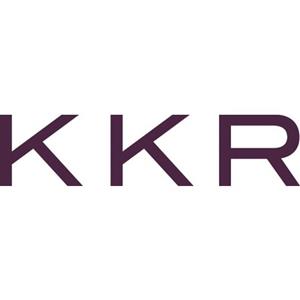The Race for Healthcare: Private Equity's Pursuit of AIMS
July 28, 2024, 5:08 am
In the bustling world of private equity, competition is fierce. The stakes are high, and the players are formidable. Recently, a new battleground has emerged in the healthcare sector, specifically in India. The Asian Institute of Medical Sciences (AIMS), a prominent hospital chain based in Faridabad, is at the center of this financial frenzy. Major firms like General Atlantic and KKR are vying for a majority stake in this 1,200-bed healthcare institution, with a potential valuation of ₹1,500 crore.
AIMS is not just a hospital; it’s a lifeline for many in North and East India. With over 1,100 doctors and 4,500 trained professionals, it operates across multiple states, including Uttar Pradesh, Jharkhand, and Bihar. The super-specialty hospital in Faridabad alone boasts around 425 beds. This is a goldmine for investors looking to tap into the booming healthcare market in India.
The interest from private equity firms is a clear signal of the growing demand for healthcare services in the region. The pandemic has spotlighted the importance of robust healthcare systems. Investors are keen to capitalize on this trend. They see hospitals not just as places for treatment but as lucrative investments.
General Atlantic is not new to this game. The firm recently acquired a significant stake in Ujala Cygnus, another hospital chain in North India. This strategic move indicates General Atlantic's intent to create a healthcare powerhouse. By acquiring AIMS, they could integrate services and expand their reach in the healthcare sector.
KKR, on the other hand, is making waves with its recent acquisition of Baby Memorial Hospital in Kerala. This move marks KKR's return to the Indian healthcare scene after a brief hiatus. The firm aims to leverage its new acquisition to build a larger healthcare platform. With a focus on hospitals with 500-1,000 beds, KKR is positioning itself as a major player in the market.
The competition for AIMS is not limited to these two giants. Other firms like Growtheum Capital and Everstone Capital are also in the mix. Each firm brings its own strategy and vision. The presence of multiple bidders is a testament to AIMS's potential. It’s a hot commodity in a rapidly evolving market.
However, the road to acquisition is not without its challenges. Existing investors, including OrbiMed and British International Investment, hold a 49% stake in AIMS. They are looking to exit, but the exact portion of the stake being sold remains uncertain. The final valuation will dictate how much of AIMS is up for grabs. This uncertainty adds a layer of complexity to the negotiations.
Veda Capital, a Chennai-based firm, has been appointed to manage the sale process. They are tasked with navigating the intricate web of negotiations and bids. The initial bids have already been submitted, setting the stage for a high-stakes auction.
The healthcare sector in India is ripe for investment. The demand for quality medical services is surging. As the population grows and ages, the need for healthcare will only increase. Private equity firms are keenly aware of this trend. They are ready to invest big bucks to secure their place in this lucrative market.
But why the sudden rush? High interest rates have previously dampened private equity activity. However, recent trends suggest a resurgence. The acquisition of Instructure by KKR for $4.8 billion signals a renewed confidence in the market. Similar deals, like Bain Capital's purchase of PowerSchool Holdings, indicate that private equity is back in action.
Investors are looking for opportunities that promise growth. Healthcare fits the bill perfectly. It’s a sector that remains essential, regardless of economic conditions. The pandemic has only underscored this reality. Investors are not just buying into hospitals; they are investing in the future of healthcare.
The implications of these acquisitions extend beyond financial gains. They have the potential to reshape the healthcare landscape in India. With increased investment, hospitals can enhance their services, expand their facilities, and improve patient care. This could lead to better health outcomes for millions.
As the bidding war for AIMS heats up, all eyes are on the private equity firms. Who will emerge victorious? The outcome will not only impact the investors but also the communities served by AIMS. The stakes are high, and the competition is fierce. In this race for healthcare, every bid counts.
In conclusion, the battle for AIMS is more than just a financial transaction. It’s a reflection of the changing dynamics in the healthcare sector. Private equity firms are recognizing the value of investing in healthcare. As they compete for stakes in AIMS, they are also shaping the future of medical services in India. The outcome of this competition will resonate far beyond the boardroom. It will affect lives, communities, and the very fabric of healthcare in the region. The race is on, and the finish line is just ahead.
AIMS is not just a hospital; it’s a lifeline for many in North and East India. With over 1,100 doctors and 4,500 trained professionals, it operates across multiple states, including Uttar Pradesh, Jharkhand, and Bihar. The super-specialty hospital in Faridabad alone boasts around 425 beds. This is a goldmine for investors looking to tap into the booming healthcare market in India.
The interest from private equity firms is a clear signal of the growing demand for healthcare services in the region. The pandemic has spotlighted the importance of robust healthcare systems. Investors are keen to capitalize on this trend. They see hospitals not just as places for treatment but as lucrative investments.
General Atlantic is not new to this game. The firm recently acquired a significant stake in Ujala Cygnus, another hospital chain in North India. This strategic move indicates General Atlantic's intent to create a healthcare powerhouse. By acquiring AIMS, they could integrate services and expand their reach in the healthcare sector.
KKR, on the other hand, is making waves with its recent acquisition of Baby Memorial Hospital in Kerala. This move marks KKR's return to the Indian healthcare scene after a brief hiatus. The firm aims to leverage its new acquisition to build a larger healthcare platform. With a focus on hospitals with 500-1,000 beds, KKR is positioning itself as a major player in the market.
The competition for AIMS is not limited to these two giants. Other firms like Growtheum Capital and Everstone Capital are also in the mix. Each firm brings its own strategy and vision. The presence of multiple bidders is a testament to AIMS's potential. It’s a hot commodity in a rapidly evolving market.
However, the road to acquisition is not without its challenges. Existing investors, including OrbiMed and British International Investment, hold a 49% stake in AIMS. They are looking to exit, but the exact portion of the stake being sold remains uncertain. The final valuation will dictate how much of AIMS is up for grabs. This uncertainty adds a layer of complexity to the negotiations.
Veda Capital, a Chennai-based firm, has been appointed to manage the sale process. They are tasked with navigating the intricate web of negotiations and bids. The initial bids have already been submitted, setting the stage for a high-stakes auction.
The healthcare sector in India is ripe for investment. The demand for quality medical services is surging. As the population grows and ages, the need for healthcare will only increase. Private equity firms are keenly aware of this trend. They are ready to invest big bucks to secure their place in this lucrative market.
But why the sudden rush? High interest rates have previously dampened private equity activity. However, recent trends suggest a resurgence. The acquisition of Instructure by KKR for $4.8 billion signals a renewed confidence in the market. Similar deals, like Bain Capital's purchase of PowerSchool Holdings, indicate that private equity is back in action.
Investors are looking for opportunities that promise growth. Healthcare fits the bill perfectly. It’s a sector that remains essential, regardless of economic conditions. The pandemic has only underscored this reality. Investors are not just buying into hospitals; they are investing in the future of healthcare.
The implications of these acquisitions extend beyond financial gains. They have the potential to reshape the healthcare landscape in India. With increased investment, hospitals can enhance their services, expand their facilities, and improve patient care. This could lead to better health outcomes for millions.
As the bidding war for AIMS heats up, all eyes are on the private equity firms. Who will emerge victorious? The outcome will not only impact the investors but also the communities served by AIMS. The stakes are high, and the competition is fierce. In this race for healthcare, every bid counts.
In conclusion, the battle for AIMS is more than just a financial transaction. It’s a reflection of the changing dynamics in the healthcare sector. Private equity firms are recognizing the value of investing in healthcare. As they compete for stakes in AIMS, they are also shaping the future of medical services in India. The outcome of this competition will resonate far beyond the boardroom. It will affect lives, communities, and the very fabric of healthcare in the region. The race is on, and the finish line is just ahead.

